Immigration vote leaves foreigners mired in confusion
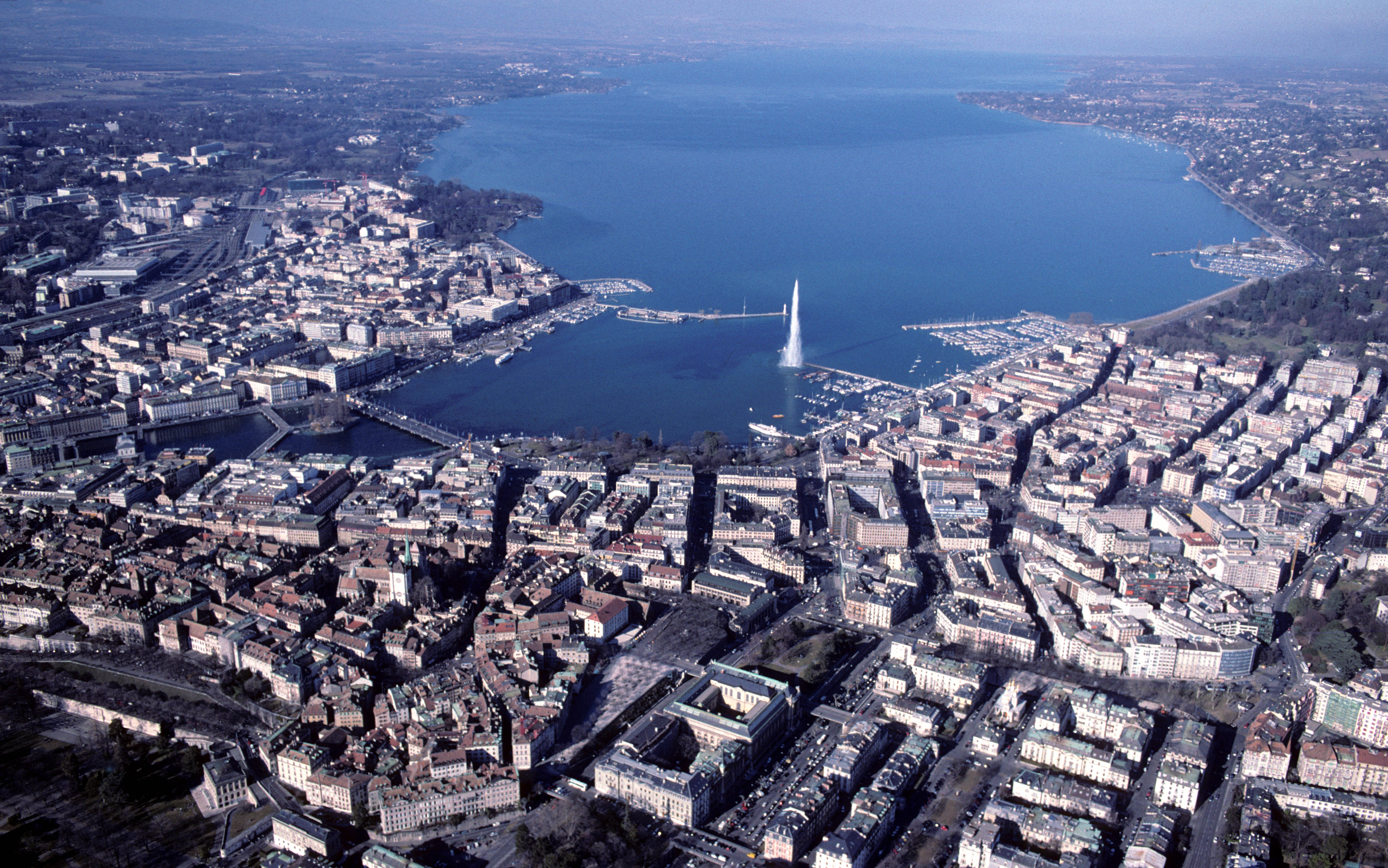
Will I be able to stay in Switzerland? Can my wife work? What will happen to my cross-border status? Could my firm suddenly up sticks? Two months after an anti-immigration vote, confusion still reigns among foreigners living and working in Geneva.
“I’ve worked in Belgium, Ireland and Cyprus before here and all that is the result of the EU, so for me it’s ironic to be for the first time in the middle of Europe and not be part of it, and now get the message that we are not even sure we can stay,” declared Patrick Soetens, a Belgian director of the online bank Strateo, who lives in France but works in Geneva.
Emotions are still running high among expatriates and cross-border workers in the Geneva region, as people grapple with the uncertainties and potential implications of the February 9 vote outcome. On that day the Swiss narrowly backed a proposal by the rightwing Swiss People’s Party to clamp down on immigration and reintroduce quotas for those from the European Union.
Switzerland now confronts the practical complexities and potential economic costs of turning the vote into new laws and regulations over the next three years.
Soetens was one of around 200 people who attended an event organised by the Glocals online expat community last month to hear from Geneva’s Minister of the Economy and Security, Pierre Maudet, about what the vote means and the possible next steps.
According to Glocals founder Nir Ofek, the vote remains a ‘very hot issue’ among the forum’s 100,000 members who are still ‘thirsty for information’ due to the uncertainty.
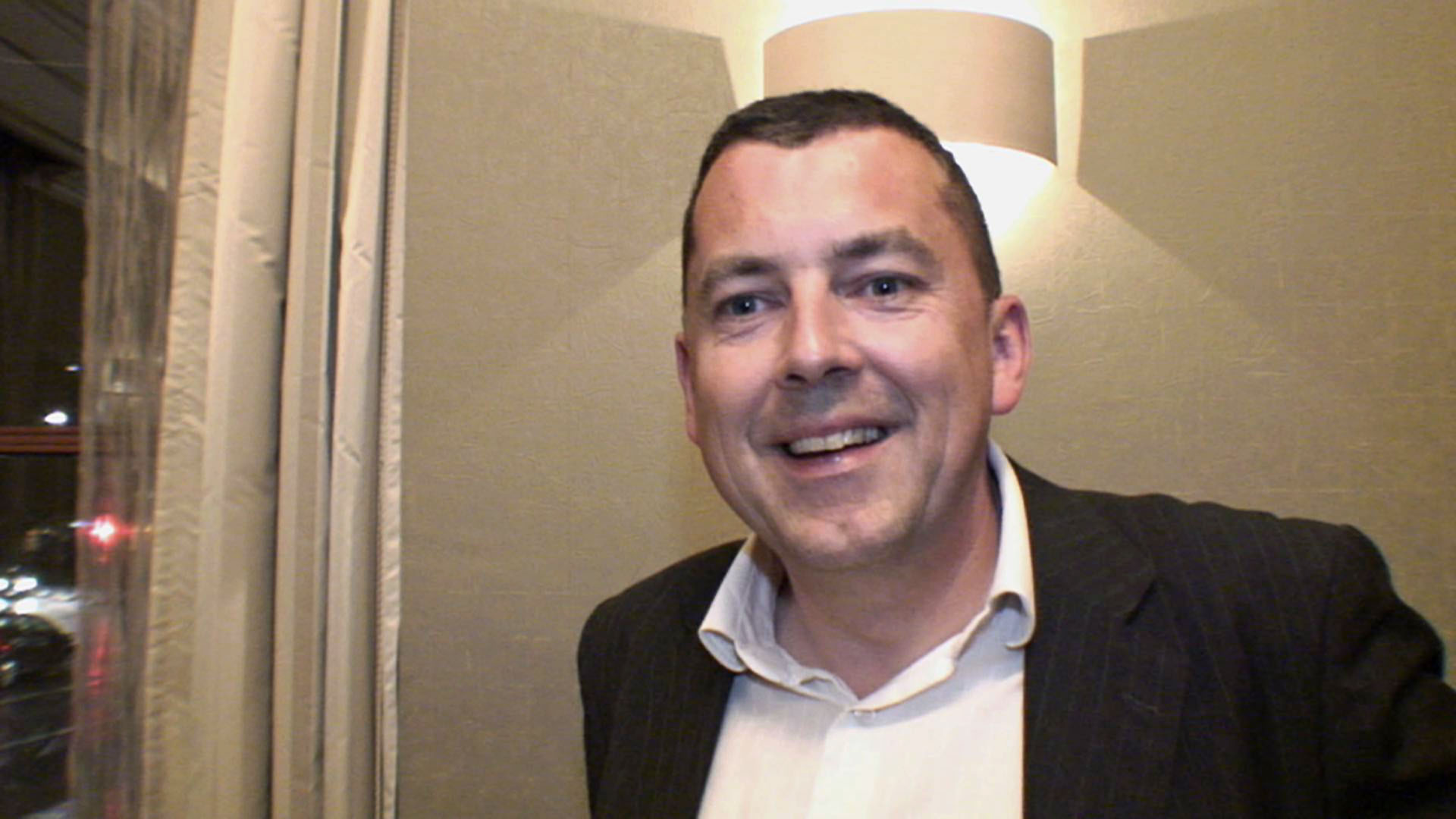
More
Vox pops
Questions to the Geneva minister – and at a similar event at the Geneva Graduate Institute on April 3 – ranged widely: from the impact on family reunions or ongoing requests for a Swiss passport to how a quota system can be compatible with the EU’s free movement of persons accord and how non-EU nationals or cross-border workers would be affected. People want to know how quotas should apply and at what level – a particular branch of the economy, region, job position or individual employee?
While thin on answers, Maudet nonetheless tried to calm nerves.
“I don’t have a crystal ball to say what might happen in three years’ time, but I can tell you what we are going to fight for,” he told the audience.
There is no need to panic, the centre-right Radical politician said, as three years is a long time, and Switzerland has an amazing ability to adapt. He added that Geneva planned to examine all options and when it came to quotas it would strongly defend its position as an international city and border region, like Basel and Ticino, reliant on foreign labour.
His message of reassurance seemed to work for some.
“I’m not too concerned. I think the Swiss government will manage to get round the vote,” said British national Matthew Leguen de Lacroix, a managing partner at DTZ real estate firm.
On February 9, Swiss voters narrowly voted in favour (50.3%) of an initiative to limit immigration. The move by the Swiss People’s Party – known for its anti-foreigner and anti-EU agenda – calls for a reintroduction of quotas, as well as a national preference when filling job vacancies and restrictions of immigrants’ rights to social benefits.
Critically, it also stipulates that Switzerland will have to renegotiate its bilateral accord with the EU on the free movement of people within three years or revoke it. This in turn could threaten other bilateral agreements with the EU.
The Swiss government plans to draw up a draft law to limit immigration by the end of the year. It will also draw up an implementation plan by the end of June and hold exploratory talks with the 28-member EU over the future of the free movement of people and other bilateral agreements.
Free movement of people and jobs within the borders of member states is one of the fundamental policies of the EU, and Switzerland, while not a member, has participated under a pact with Brussels. The bilateral accord on the free movement of persons entered into force in 2002. The eastern European countries who joined the EU later were included in the accord from 2011, and restrictions to the Swiss job market on workers from more recent members – Bulgaria and Romania – will remain until 2016. A solution for Croatia – the newest member – is being discussed.
Uneasiness
The vote was a reaction to recent net immigration, which has been running at about 80,000 a year for the past five years. Foreigners now make up about 23% of the Swiss population of eight million. In canton Geneva they represent 41%, of which six out of ten are from the European Union.
Home to over 900 multinationals, employing thousands of foreign staff moving to and fro, and with 69,000 workers commuting daily from neighbouring France, the impact on Geneva could be significant.
Jean-François Besson, secretary general of the cross-border workers association GTE, said two months on the situation had not got any clearer and his members remained worried.
“As time passes, and from our meetings with people and contacts on the ground, we realise that there is a real uneasiness on the Swiss side,” said Besson. He fears any quotas will favour the Geneva private sector over public administration, which employs many cross-border workers.
Switzerland’s business elite also warn the vote has increased insecurity and curbs could harm competitiveness. A Credit Suisse report estimated that the Swiss economy could generate 80,000 fewer jobs over the next three years as a result.
“The increasing global competition and number of initiatives these past few years, including the mass immigration vote, have increased uncertainty and is harming the predictability and stability of the Swiss political and legal systems,” said Frédérique Reeb-Landry, president of the Groupement des Entreprises Multinationales (GEM), an association representing 81 multinationals in the Lake Geneva region.
Families affected
Expat breadwinners are not the only ones worried about their futures.
“The spouses of internationals – husbands and wives who follow them to Switzerland – will receive a residential permit but will they have a work permit? This is a major concern in our office and partners about what can happen with families and where they cannot integrate professionally,” said Andrea Delannoy, a manager at SCC Sarl Centres.
And one should not forget the rest of so-called International Geneva. Unlike the 250 non-governmental organizations based in Geneva and the numerous international sports federations in neighbouring canton Vaud, international civil servants working at the United Nations headquarters and other international organisations will largely escape any quotas. But certain exceptions could still hit home.
“[The vote] won’t affect the employment rights of UN staff directly as they aren’t subject to work permits so they have a special card given by the foreign ministry called the ‘legitimation card’ to live and work in Switzerland. However, we are concerned on the effect it may have on spouses, and children and staff who wish to retire in Switzerland,” Ian Richards, executive secretary of the United Nations Office in Geneva Staff Coordinating Council, noted.
“This could have a devastating effect on couples as the spouse expects to work. If you remove spouse employment you make Geneva much less attractive. On a practical level it does damage how Switzerland is seen by our colleagues, especially those who may have been planning to come here.”

In compliance with the JTI standards
More: SWI swissinfo.ch certified by the Journalism Trust Initiative

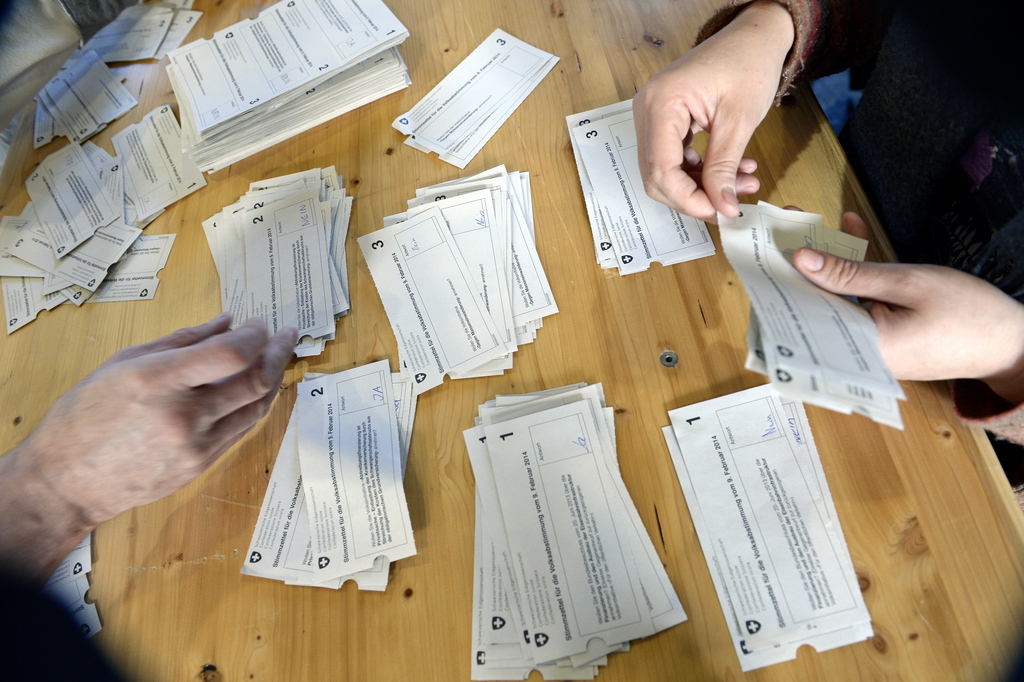
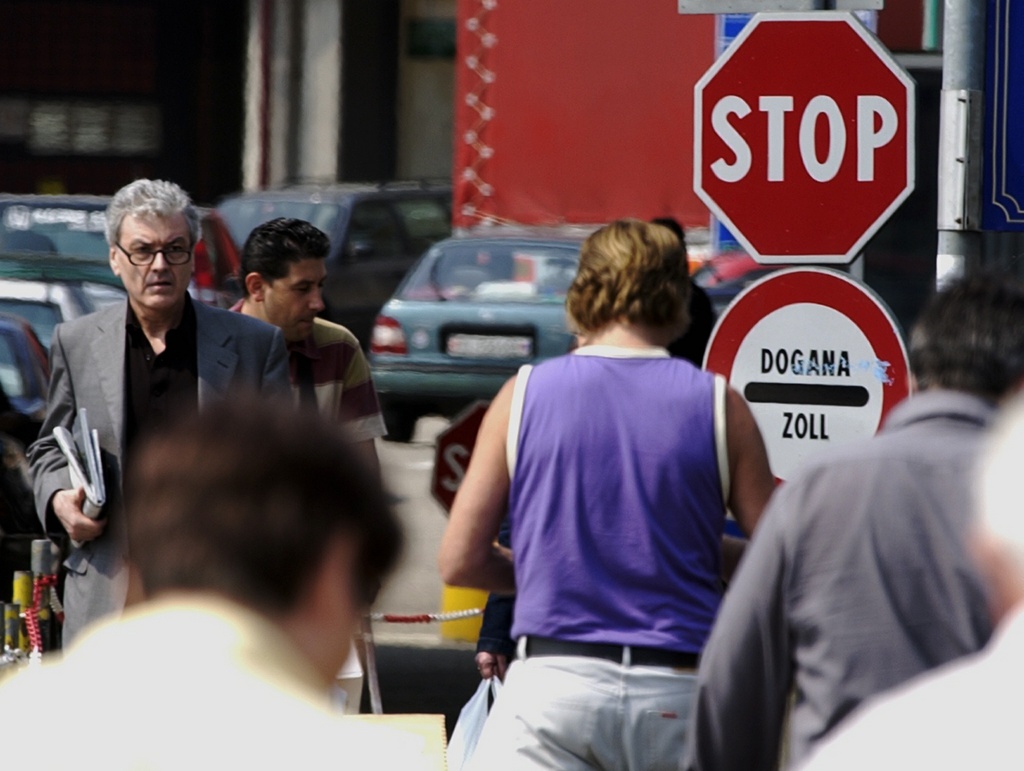
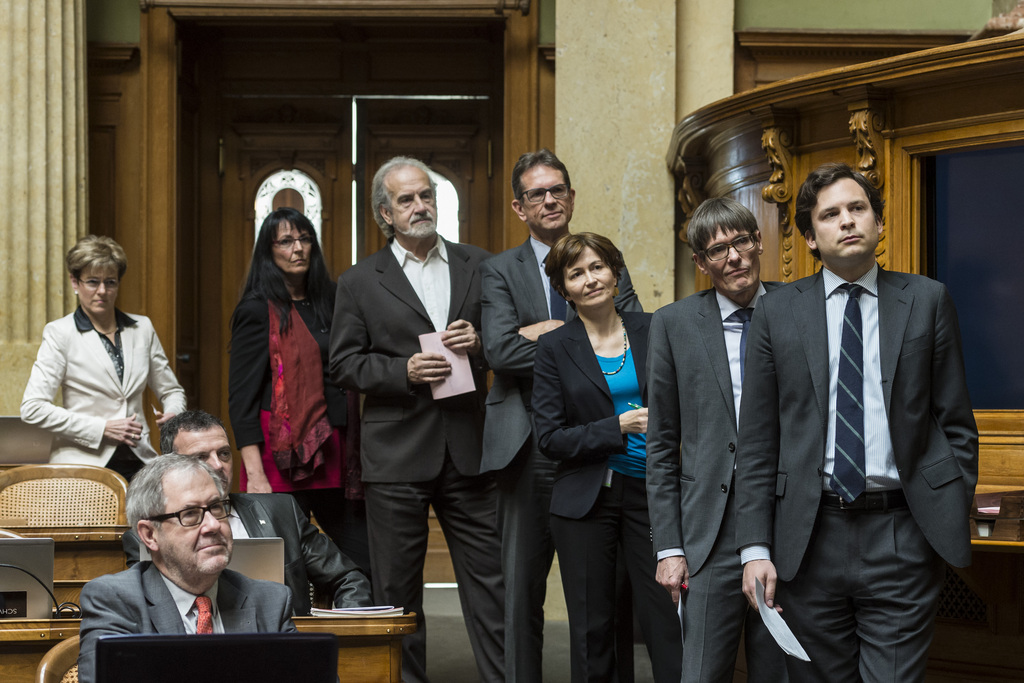
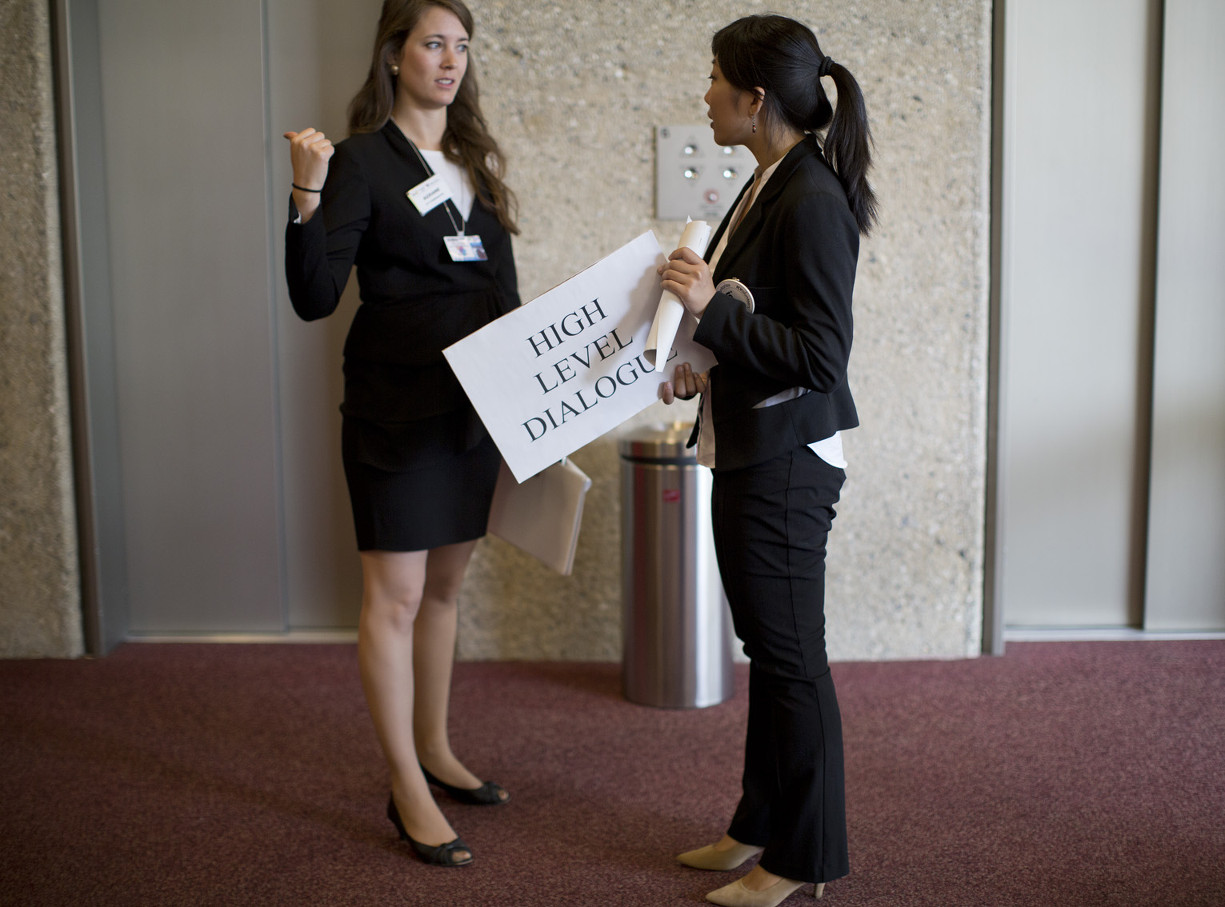
You can find an overview of ongoing debates with our journalists here. Please join us!
If you want to start a conversation about a topic raised in this article or want to report factual errors, email us at english@swissinfo.ch.